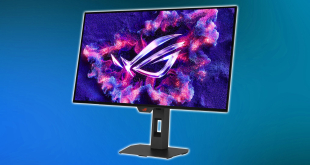It seems like Synology's entry level DiskStation, the DS115j has been around for ever – although it only launched in 2014, that's a long time to wait in NAS land for a successor, but now that successor has arrived in the shape of the DiskStation DS119j.
The DiskStation DS119j uses more modern hardware than the DS115j. In place of the 800MHz 32-bit Marvel Armada 370 SOC with an ARM v7 processor that was in the DiskStation DS115j, the DiskStation DS119j uses the more advanced dual-core member of the Armada 3700 family, the 3700 88F3720. Still clocked at 800MHz, the 64-bit Marvell Armada 3700 88F3720 uses two Cortex-A53 ARM v8 processors.
The 88F3720 also supports DDR3/3L and DDR4 memory, and in the DS119j Synology has teamed it up with 256MB of DDR3L memory which is soldered onto the motherboard so there's no memory upgrades available.
To keep the cost of the DS119j down there are no flashy USB 3.0 or 3.1 ports, just a couple of plain old USB 2.0 connectors on the rear panel. The DS119j (at the time of writing) supports drives up to 14TB and the maximum supported volume size has risen from 16TB of the previous DS115j up to 108TB for the new unit.
Many people will scoff at the idea of a single bay NAS and think that they are just a glorified external hard drive that connects to the network instead of a USB port etc. After all, with a single disk NAS you have as much data protection as an external drive. That is certainly a drawback, but the DS119j has an ace up its sleeve which makes it much more useful than a basic drive – Synology's DiskStation Manager (DSM) software, which opens a wealth of possible uses for the unit.
We found the DiskStation DS119j on Span.com for £98.40 HERE. The cost of the configuration as Synology supplied for this review, with a 4TB Seagate IronWolf drive, is £207.60.
Pros
- DSM OS.
- Hardware encryption.
- Well priced.
Cons
- Single disk offers no data protection.
KitGuru says: Supporting hard drives up to 14TB, the DiskStation 119j is ideal for people who don't want to bother setting up a RAID array but do want to experience what a NAS can offer. But more than that, the DSM OS makes it an idea tool to use for dedicated jobs on an office or even home network – just remember to back all that data up.
 KitGuru KitGuru.net – Tech News | Hardware News | Hardware Reviews | IOS | Mobile | Gaming | Graphics Cards
KitGuru KitGuru.net – Tech News | Hardware News | Hardware Reviews | IOS | Mobile | Gaming | Graphics Cards




